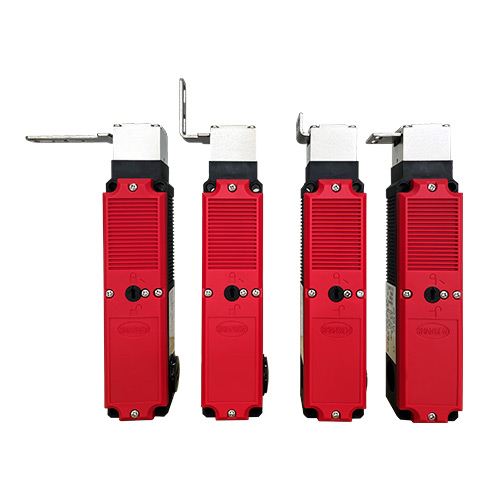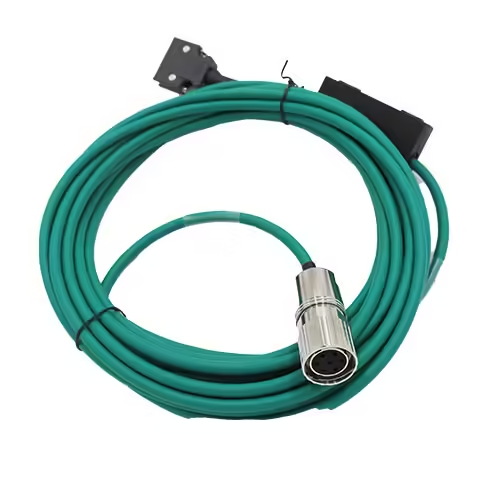-
WhatsAPP: +86 18706448138
-
Tengzhou, Shandong, China

Everything You Need to Know About CNC Pulse Generators
Learn about CNC pulse generators, their functions, and how to choose the right one for your CNC machine. Improve precision in machining.
Welcome to My Blog!
Before we dive into the content, if you’re interested in our products or have any questions, please feel free to visit our Contact Us page on the website. Our team is ready to assist you with inquiries, orders, or any support you may need.
Now, let’s get started on our journey together. I hope you find the content here insightful, engaging, and valuable.
Table of Contents
CNC (Computer Numerical Control) technology has revolutionized the manufacturing industry, offering unprecedented precision, automation, and efficiency in machining processes. One of the critical components that ensure these high levels of performance is the CNC Pulse Generator. In this article, we will explore what a CNC pulse generator is, its key functions, how to choose the right one, common troubleshooting tips, and the latest trends driving the growth of this essential technology.
What is a CNC Pulse Generator?

A CNC pulse generator is a device used to control the motion of CNC machines by producing electrical pulses that guide the machine’s axes in precise movements. These pulses provide signals to the machine’s stepper motors or servos, dictating the position, speed, and direction of movement. It acts as the heart of the CNC control system, enabling machines to achieve high levels of accuracy and repeatability.
Definition of CNC Pulse Generator
A CNC pulse generator is an electronic device that converts digital signals into mechanical motion. It sends pulse signals to the CNC machine’s drive system, which translates these signals into precise movements of the machine tools.
How Does a CNC Pulse Generator Work?
The CNC pulse generator works by transmitting electrical pulses in a specific sequence to the machine’s stepper motors or servos. Each pulse represents a small unit of movement (typically referred to as a “step”). The frequency of the pulses controls the speed of the machine, while the direction and the number of pulses determine the movement’s path and distance.
Key Components of a CNC Pulse Generator
- Signal Generator: Generates the pulses.
- Control Interface: Connects the pulse generator to the CNC machine’s controller.
- Drive System: Receives and executes the pulse commands to move the motors.
Why is a CNC Pulse Generator Important for CNC Machines?
A CNC pulse generator is essential for achieving the high accuracy and repeatability that modern manufacturing requires. Without a pulse generator, CNC machines would lack the fine control necessary for intricate machining tasks, leading to errors and inefficiencies.
Enhancing Precision and Accuracy in Machining
By providing precise pulse signals to the machine’s motors, a CNC pulse generator ensures that the machine can move in extremely small increments, achieving tight tolerances and high-quality finishes on parts.
Role in Speed Control and Efficiency
The pulse generator controls the speed of the CNC machine by regulating the pulse frequency. This enables the machine to adjust its speed depending on the requirements of the job, leading to enhanced efficiency and quicker production times.
Reducing Mechanical Wear and Tear
CNC pulse generators help maintain smooth motion and prevent erratic movements, which can reduce the mechanical stress on the machine. This reduces wear and tear, extends the machine’s lifespan, and lowers maintenance costs.
Types of CNC Pulse Generators

CNC pulse generators are available in various types, each designed to meet specific requirements of different CNC machines and manufacturing applications.
Digital vs. Analog CNC Pulse Generators
Digital CNC pulse generators produce discrete pulses at fixed intervals, while analog models generate a continuous signal that can be adjusted in real-time. Digital pulse generators are more commonly used today due to their higher precision and reliability.
High-Speed CNC Pulse Generators
High-speed CNC pulse generators are designed to handle the rapid movements required in high-performance CNC machines. These generators can produce pulses at much higher frequencies, allowing for faster and more precise machining.
Programmable CNC Pulse Generators
Programmable CNC pulse generators allow for greater flexibility. Users can set pulse parameters based on specific machining requirements, making them ideal for applications that require custom configurations.
How to Choose the Best CNC Pulse Generator for Your CNC Machine
Choosing the right CNC pulse generator is crucial to maximizing your machine’s performance. Here are some key factors to consider when selecting one:
Key Factors to Consider When Choosing a CNC Pulse Generator
- Compatibility: Ensure the pulse generator is compatible with your CNC machine’s motor type and controller.
- Accuracy: Look for a pulse generator with a high resolution for precise control.
- Speed: Choose a generator that can handle the speed requirements of your machine and job.
- Durability: Select a robust generator that can withstand the demands of your machining environment.
CNC Pulse Generator Compatibility with Different CNC Machines
Different CNC machines (milling, turning, and 3D printers) require different types of pulse generators. Ensure that the generator you choose matches the motor control system of your CNC machine to ensure proper operation.
Price Range of CNC Pulse Generators
The price of CNC pulse generators can range from affordable models for small shops or hobbyists to high-end systems for industrial-grade applications. Prices typically range from $100 to over $2,000, depending on the specifications and features.
Best CNC Pulse Generators on the Market in 2025
Some of the top-rated CNC pulse generators for 2025 include brands like Siemens, Mitsubishi, and FANUC, which are known for their high precision and reliability in industrial applications.
How to Install and Set Up a CNC Pulse Generator

Proper installation and setup are essential to ensure that your CNC pulse generator functions effectively.
CNC Pulse Generator Installation Steps
- Mounting: Securely mount the pulse generator in a suitable location within the CNC control system.
- Wiring: Connect the pulse generator to the CNC controller and motor system using appropriate cables.
- Configuration: Set up pulse parameters in the CNC software to match the required movement specifications.
Wiring and Connecting the CNC Pulse Generator
Follow the manufacturer’s instructions for connecting the pulse generator to the CNC controller. Ensure that the signal and power cables are properly connected to avoid any electrical issues.
Configuration Settings for Optimal Performance
Adjust the pulse frequency and resolution settings to match the specific machining requirements, ensuring smooth and accurate movements during the operation.
Troubleshooting Common Issues with CNC Pulse Generators
While CNC pulse generators are generally reliable, problems can occasionally arise. Here are some common issues and troubleshooting steps:
Common Problems with CNC Pulse Generators
- Signal Loss: If the signal is lost, check the wiring and ensure the generator is properly connected.
- Inaccurate Movement: This can result from incorrect pulse frequency or faulty components.
How to Fix a CNC Pulse Generator That’s Not Working
Check all electrical connections, inspect for any damaged parts, and recalibrate the system. If the problem persists, consult the manufacturer for further troubleshooting.
Understanding CNC Pulse Generator Error Codes
Error codes can indicate problems such as signal interference, motor issues, or configuration errors. Refer to the manufacturer’s manual to decode the error and resolve the issue.
Applications of CNC Pulse Generators
CNC pulse generators are used in various industries and applications to achieve precision and speed.
CNC Pulse Generators in Metal Machining
In metal machining, CNC pulse generators are crucial for achieving precise cuts and finishes on parts made from materials like steel, aluminum, and titanium.
Role of CNC Pulse Generators in 3D Printing
In 3D printing, CNC pulse generators control the movement of the printer’s extruder and build platform, ensuring accurate deposition of material.
CNC Pulse Generators for PCB Manufacturing
CNC pulse generators are used in PCB manufacturing for precise drilling, milling, and routing of electronic components.
How CNC Pulse Generators Enhance Robotics and Automation
CNC pulse generators play a key role in robotics and automation by providing the necessary control signals for robotic arms and other automated systems.
How to Upgrade Your CNC Pulse Generator

Upgrading your CNC pulse generator can improve performance, especially for high-speed or high-precision applications.
Signs You Need to Upgrade Your CNC Pulse Generator
- Reduced Accuracy: If your machine is no longer achieving the desired precision, an upgrade may be necessary.
- Slower Processing Speeds: An outdated pulse generator can limit machine speed, affecting productivity.
Benefits of Upgrading Your CNC Pulse Generator
Upgrading can improve precision, reduce errors, and enable faster machining, ultimately increasing efficiency and reducing production time.
How to Choose the Right Upgraded CNC Pulse Generator
Select an upgraded model with higher pulse resolution, better compatibility with modern CNC controllers, and enhanced durability for long-term performance.
Conclusion
CNC pulse generators are essential components of modern CNC machinery, providing the precision, speed, and control necessary for high-quality manufacturing. By understanding their function, selecting the right model, and keeping them well-maintained, manufacturers can significantly improve their manufacturing processes and equipment longevity. Whether you’re looking to upgrade your current CNC system, troubleshoot an issue, or simply improve the accuracy of your machining operations, understanding the role of the CNC pulse generator is key to optimizing performance.
FAQ
What is a CNC Pulse Generator?
A CNC pulse generator is an electronic device that sends precise electrical pulses to control the movement of CNC machine motors. It helps guide the machine’s axes in fine increments to achieve accurate and repeatable movements.
How does a CNC Pulse Generator work?
It works by generating electrical pulses that control the stepper motors or servos in CNC machines. The frequency and direction of these pulses determine the speed, position, and movement of the machine’s components.
Why is a CNC Pulse Generator important?
CNC pulse generators are crucial for achieving high precision and repeatability in machining processes. They ensure that CNC machines operate with exact accuracy, which is essential for producing complex and high-quality parts.
Can I use a CNC Pulse Generator with any CNC machine?
Not all CNC machines are compatible with every pulse generator. It’s important to ensure that the pulse generator is designed for the specific type of CNC machine and motor system you’re using, whether it’s a milling machine, lathe, or 3D printer.
How do I troubleshoot a CNC Pulse Generator issue?
Common issues include signal loss or inaccurate movements. To troubleshoot, check wiring connections, ensure proper configuration settings, and verify that there is no damage to the components. If issues persist, refer to the manufacturer’s manual or consult a professional technician.
Ready to Upgrade Your CNC Pulse Generator?
If you’re looking to enhance the precision and efficiency of your CNC operations, upgrading or fine-tuning your CNC pulse generator is a great place to start. With the right pulse generator, you can improve accuracy, reduce machine wear, and boost productivity.
Don’t wait—take your CNC machining to the next level today! Contact us for expert advice, personalized recommendations, or to explore our top-quality CNC pulse generators. Let’s optimize your equipment for the future of manufacturing.
Get in touch now and start improving your CNC machine performance!


